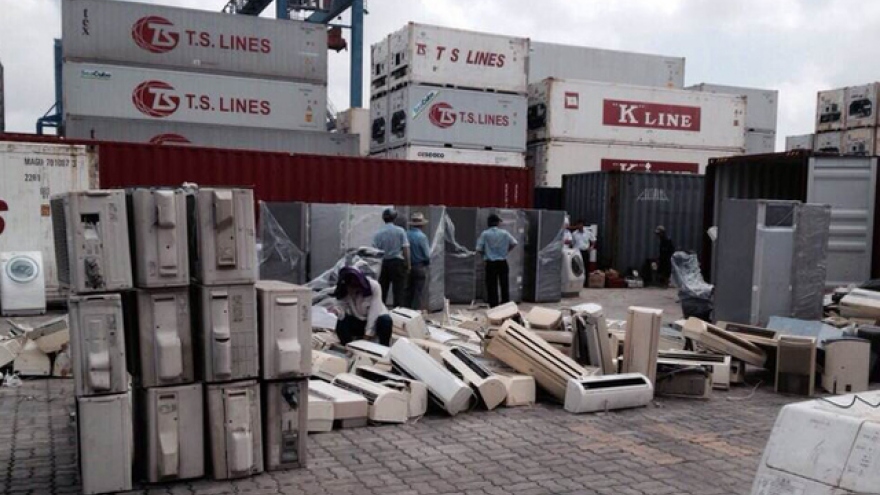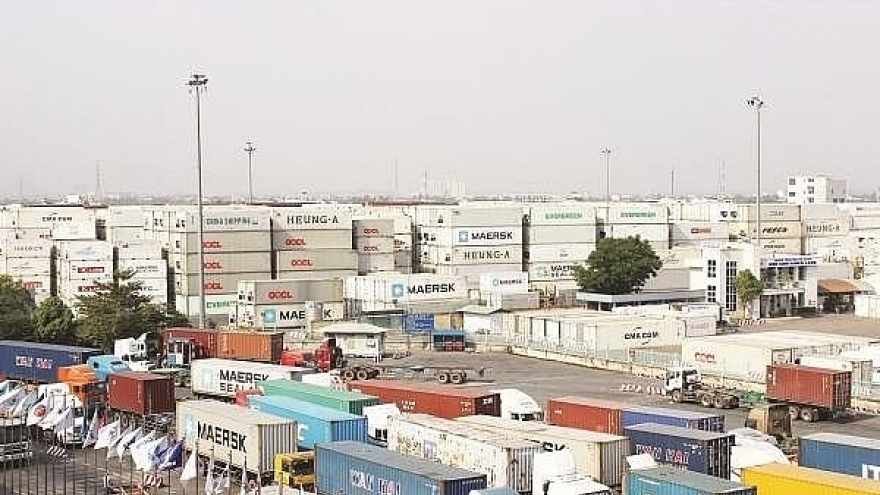Strong actions needed to not turn Vietnam into world’s scrap destination
To prevent Vietnam becoming a destination for scrap from other countries, ministries, sectors and localities need to enhance coordination in managing scrap imports and use of scrap as production material, Minister of Natural Resources and Environment Tran Hong Ha has said.
 |
The minister made the statement while chairing a meeting in Hanoi on July 12 on a draft report on the environmental management of importing and using scrap as production material.
According to the environment ministry, total scrap import volume, including iron, steel, plastics and paper, in 2017 doubled from the previous year. Notably, plastic scrap import volume between January and May this year almost doubled the whole figure of 2017.
Imported scrap comes from many countries, including the US and those in the EU as well as in Asia.
Notably, a large volume of imported scrap is stuck at ports in Ho Chi Minh City, Hai Phong city and other localities.
Data of the HCM City Customs Department and the Saigon Newport Corporation show that as of June 26, up to 4,480 containers of scrap had been stuck at the ports under the corporation’s management for at least 30 day.
About 20% of the imported scrap is paper and the rest is plastics and other types of scrap, the ministry noted.
Participants in the meeting, including officials of the ministries of finance, industry and trade, public security, justice, and transport, attributed the scrap congestion to the fact that in late 2017, the Chinese government decided to stop importing 24 types of scrap used for recycling. As a result, the countries that used to export solid waste and scrap to China have had to seek new import markets, including Vietnam, leading to a rise of scrap containers, especially plastic scrap, at seaports.
Some shipping companies warned that a large volume of plastic and paper scrap will continue to flow into Vietnamese seaports as scrap under signed contracts is still being transported to the country.
Meanwhile, many importers haven’t performed customs clearance procedures because they lacked certificates of environmental protection eligibility in scrap import but still signed scrap trading contracts. Some only have expired or fake certificates.
Vietnam lacks mechanisms to prevent and control scrap imports from afar. Only when scrap is loaded onto ports can procedures be handled, so the country plays a passive role in dealing with violators, the meeting heard.
Environment Minister Ha said imported scrap stuck at seaports need to be promptly handled. In the long term, relevant ministries and sectors need to overhaul legal documents in line with laws on environmental protection and trade and the maritime code.
They should also devise mechanisms for managing and controlling scrap trading activities before scrap enters Vietnam, he added.


